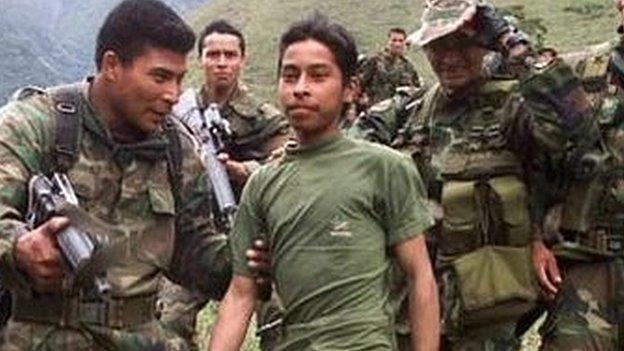Colombia's President Santos says Farc deal must rebuild country
- Published
Juan Manuel Santos: "The signature of the deal is simply the end of the conflict then the hard work starts"
Colombia's President Juan Manuel Santos says peace with the Farc rebel group will boost economic growth and enable the country to rebuild its social fabric.
"War is always more costly than peace," he said in an interview with the BBC.
Mr Santos and Farc leader Timoleon Jimenez, known as Timochenko, will sign a historic peace deal later on Monday.
But it will take a long time for Colombian society to recover from more than five decades of conflict, he said.
The Farc will be relaunched as a political party as part of the deal, which is due to be put to Colombian voters in a popular vote on 2 October.
"We could have grown between 2% and 3% more per year for the past 23 years," Mr Santos told the BBC's Lyse Doucet, adding that the conflict had also had a profound impact on Colombian society.
"We have even lost our compassion, which is the ability to feel some kind of pain for others.
"A country at war for 50 years is a country that has destroyed many of its values," said President Santos.
President Santos: From hawk to dove, external

Analysis: BBC chief international correspondent Lyse Doucet
Colombia's peace deal makes history in many ways, most of all for ending the last of the Cold War conflicts. But it also breaks new ground in trying to balance the desire for peace with the demands of justice which bedevil all peace talks.
There's no amnesty, unlike all previous peace accords in the region. The Farc, as well as Colombia's security forces, have accepted special tribunals and a truth and reconciliation process.
Many of the victims of the Farc's brutality have been brought into the process. If polls are to be believed, a majority will vote to accept this deal. But I kept meeting people in Bogota and Cartagena who said they would vote no.
Fifty years of war also means decades of hatred and mistrust. Many doubt that the Farc will give up all its lucrative criminal activities. Will this deal also make history in being a peace deal which doesn't fall apart?

How have we got here?
The peace agreement was sealed last month after nearly four years of talks, which were held in the Cuban capital, Havana.
A bilateral ceasefire came into force five days later, effectively ending the conflict.
Senior members of the Farc (Revolutionary Armed Forces of Colombia) voted unanimously to ratify the deal on the last day of their conference on Friday.
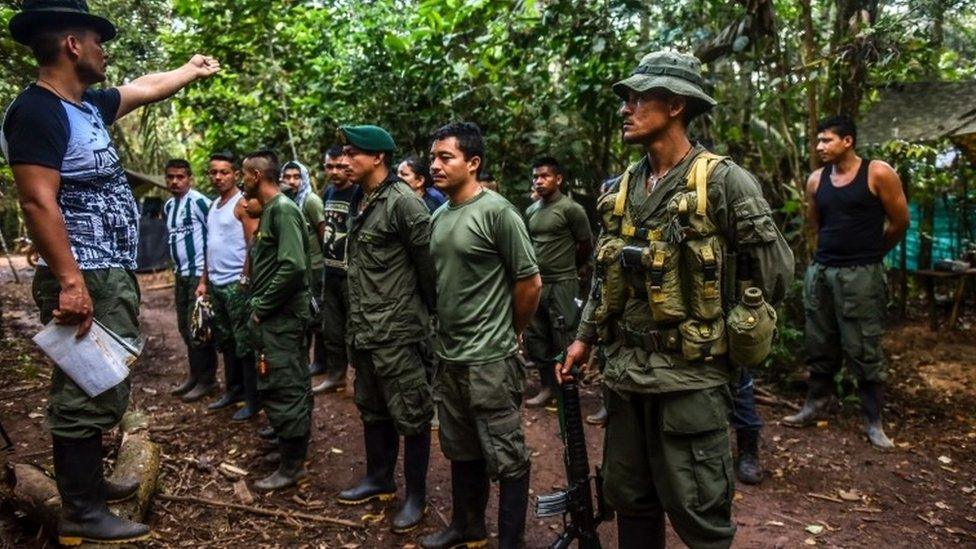
The Marxist group has been fighting the Colombian Armed Forces since 1964
The 52-year conflict has led to the deaths of an estimated 260,000 people with more than six million people internally displaced.
"The signature of the deal is simply the end of the conflict. Then the hard work starts: reconstructing our country," President Santos said.

What's in the deal?
The Farc now has 180 days to disarm and move its estimated 7,500 fighters into disarmament zones set up by the UN.
An amnesty will be granted for "political crimes" but this does not cover massacres, torture or rape.
The Farc has already agreed to stop drug production in areas under its control and the government has pledged to help farmers earn a living without growing illicit crops.
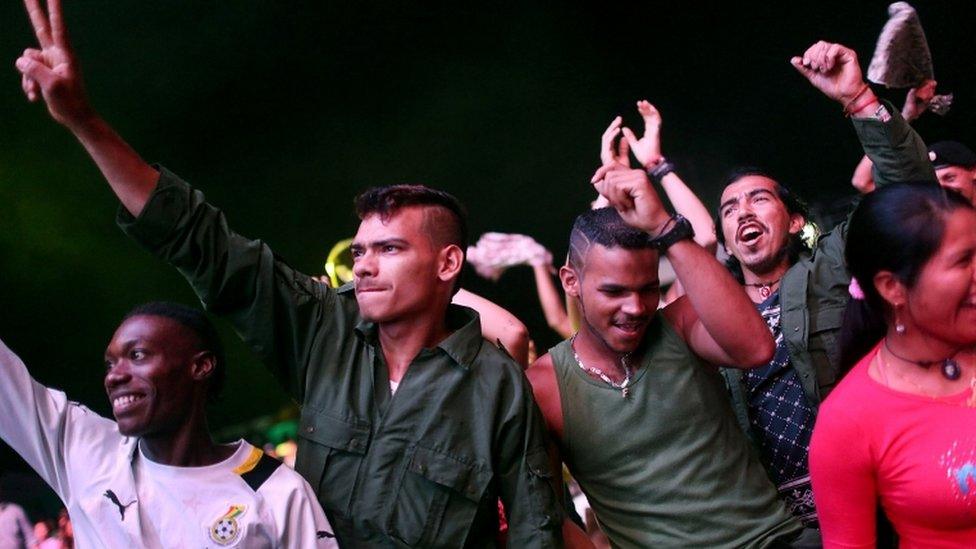
Farc rebels at the conference celebrated the end of the conflict
The Farc will become a political party, allocated 10 seats in the 268-member Congress.
Once the deal is signed EU sanctions against the group are expected to be suspended, the bloc's ambassador in Bogota said. They could be permanently removed from the EU's list of terror organisations after six months have elapsed, according to EU officials.
Both sides have pledged to provide land, loans and basic services to impoverished rural areas.
Mr Santos says the deal with the Farc was fair and that it made those who committed war crimes accountable.

Who's attending?
Mr Santos and Farc leader Timoleon Jimenez will sign the historic peace deal at a ceremony in the port city of Cartagena on Monday evening.
The document will be signed using a Baligrafo - a bullet turned into a pen - as a symbol of a peaceful future.
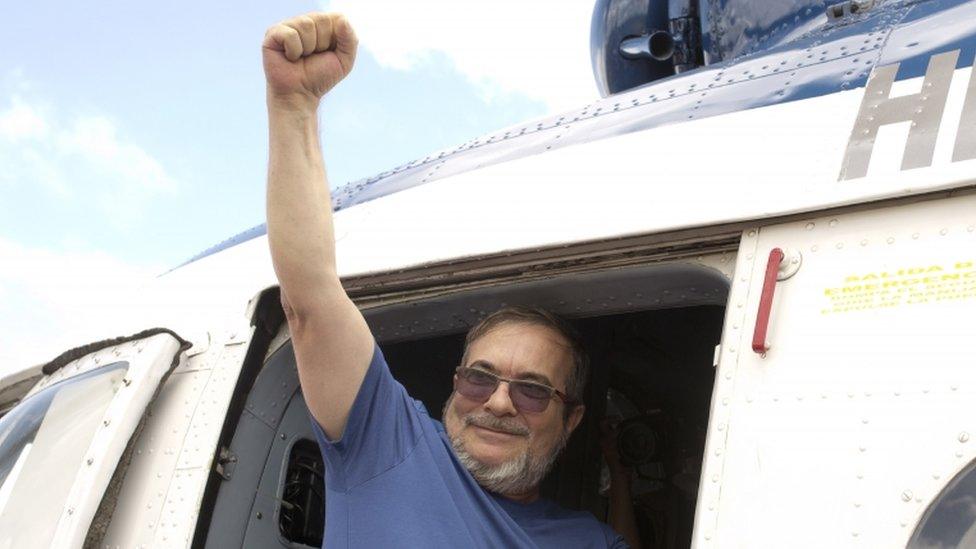
Timochenko travelled to Cartagena on Saturday for the historic ceremony
Some 2,500 attendees are expected, among them UN Secretary General Ban Ki-moon, US Secretary of State John Kerry and several Latin American leaders including Cuba's Raul Castro.
Victims of the conflict will also be present.

What's next?
Mr Santos said he was "very, very confident" that most Colombians would vote in favour of the deal.
"The latest polls say that between 65% and 70% of the people approve of the peace process," he said
But he warned that if the agreement was rejected in the popular vote, the conflict would start again.
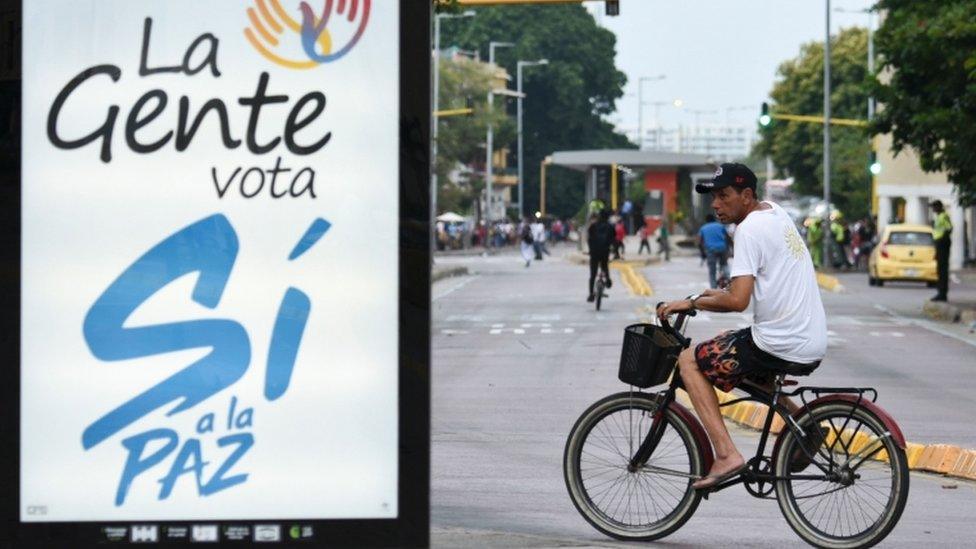
"The people vote yes to peace," reads an sign in Cartagena
"We will go back six years and continue the war with the Farc. That's plan B," he said.
Colombia's second largest rebel group, the ELN (National Liberation Army), announced on Sunday a unilateral ceasefire until the referendum.
ELN leaders have publicly expressed their wish to engage in their own peace process with the Colombian government.

The Farc's 52-year fight

1964: Set up as armed wing of Communist Party
2002: At its height, it had an army of 20,000 fighters controlling up to a third of the country. Senator Ingrid Betancourt kidnapped and held for six years along with 14 other hostages
2008: The Farc suffers a series of defeats in its worst year
2012: Start of peace talks in Havana
2016: Definitive ceasefire
Female Farc fighter admits babies were aborted

- Published24 September 2016
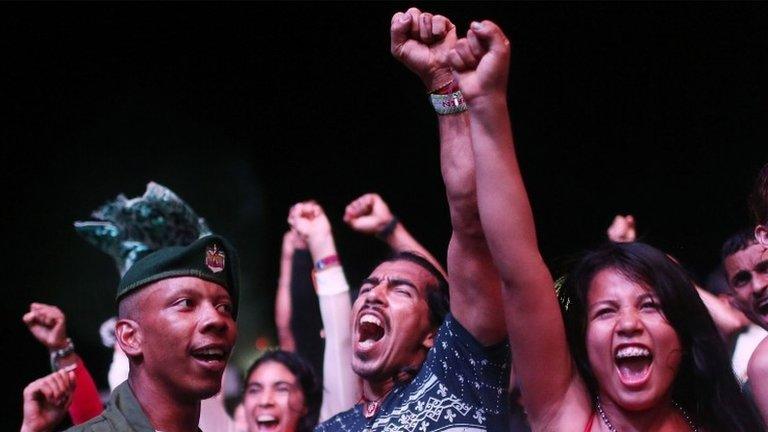
- Published29 August 2016
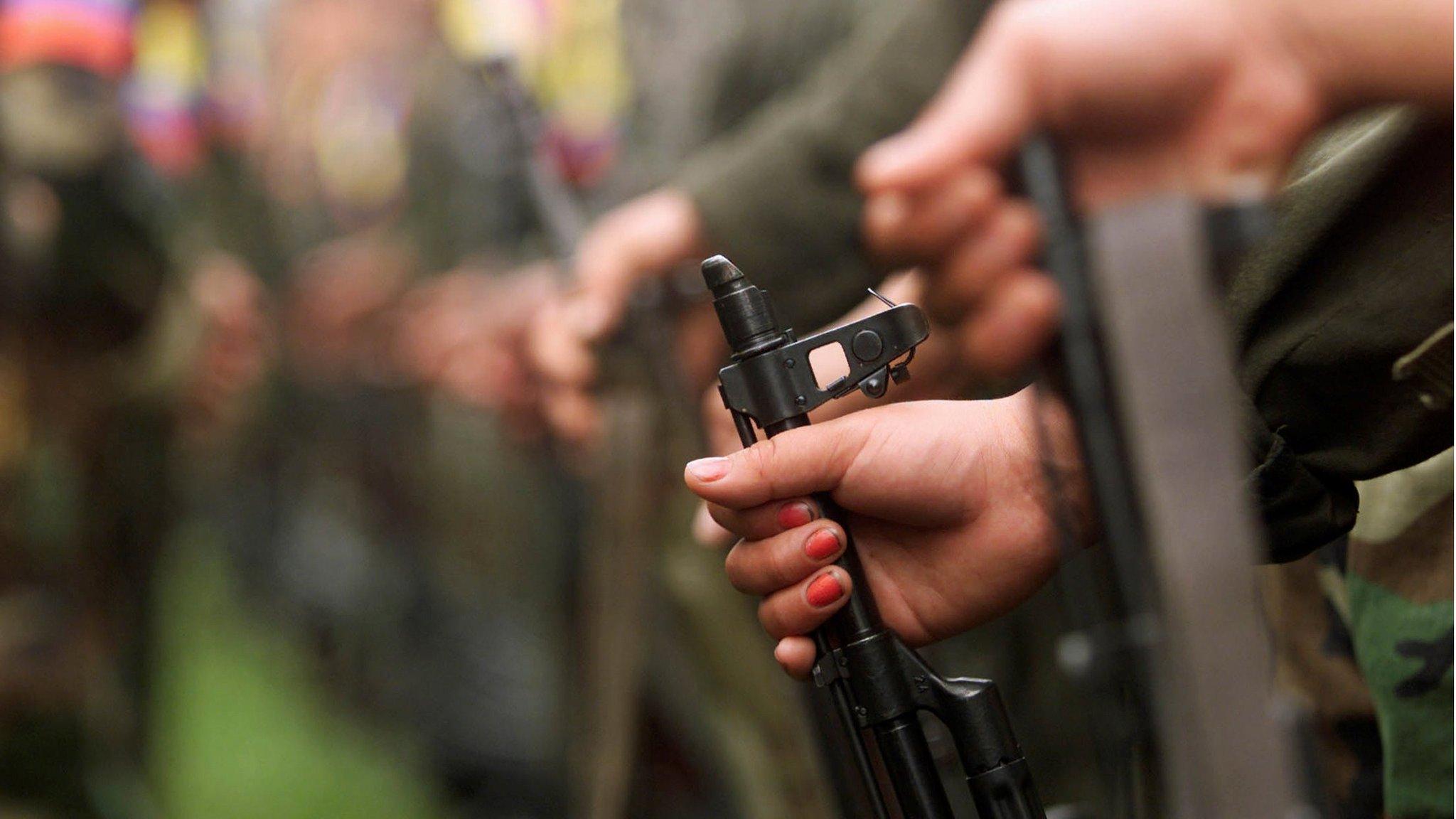
- Published11 September 2016
